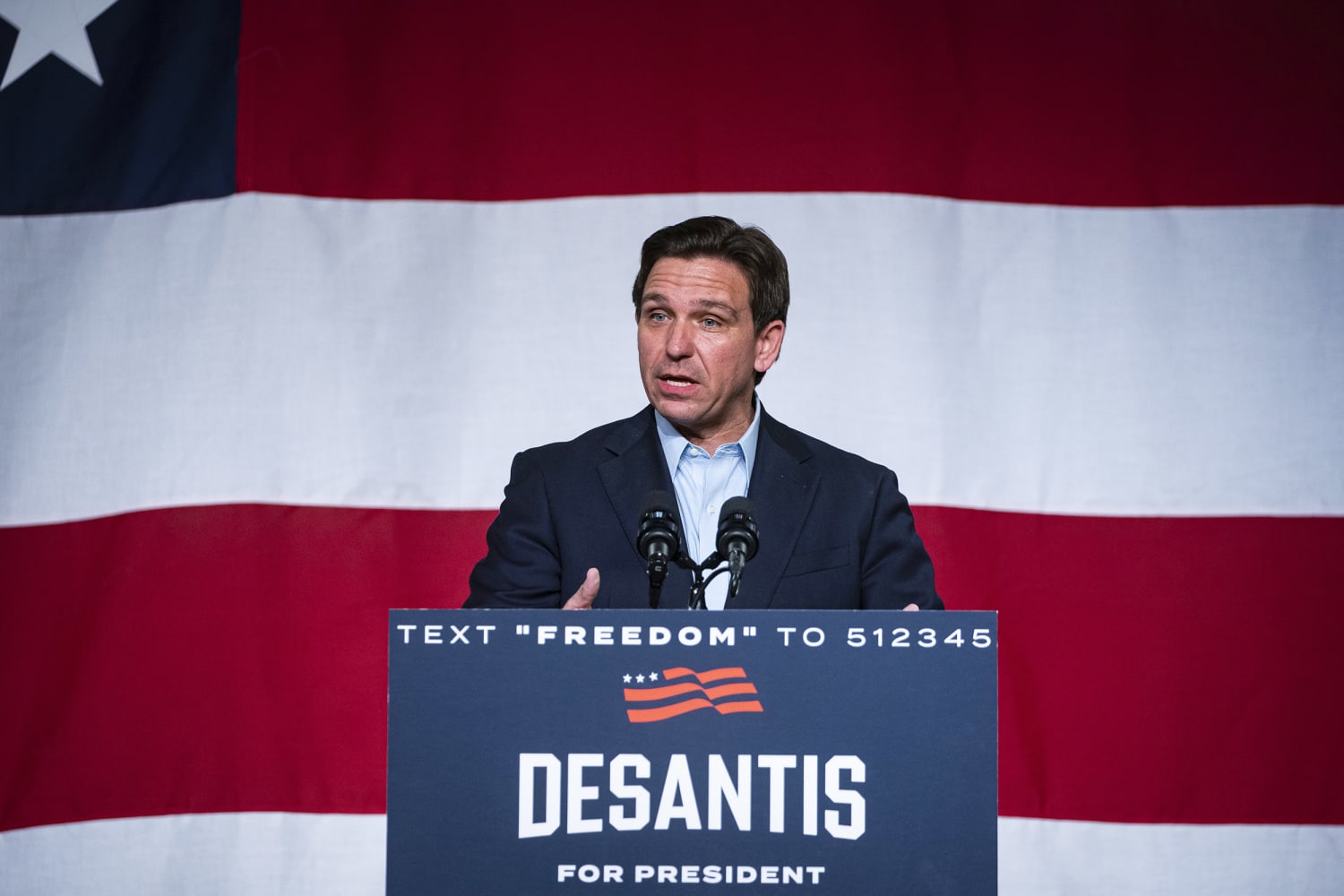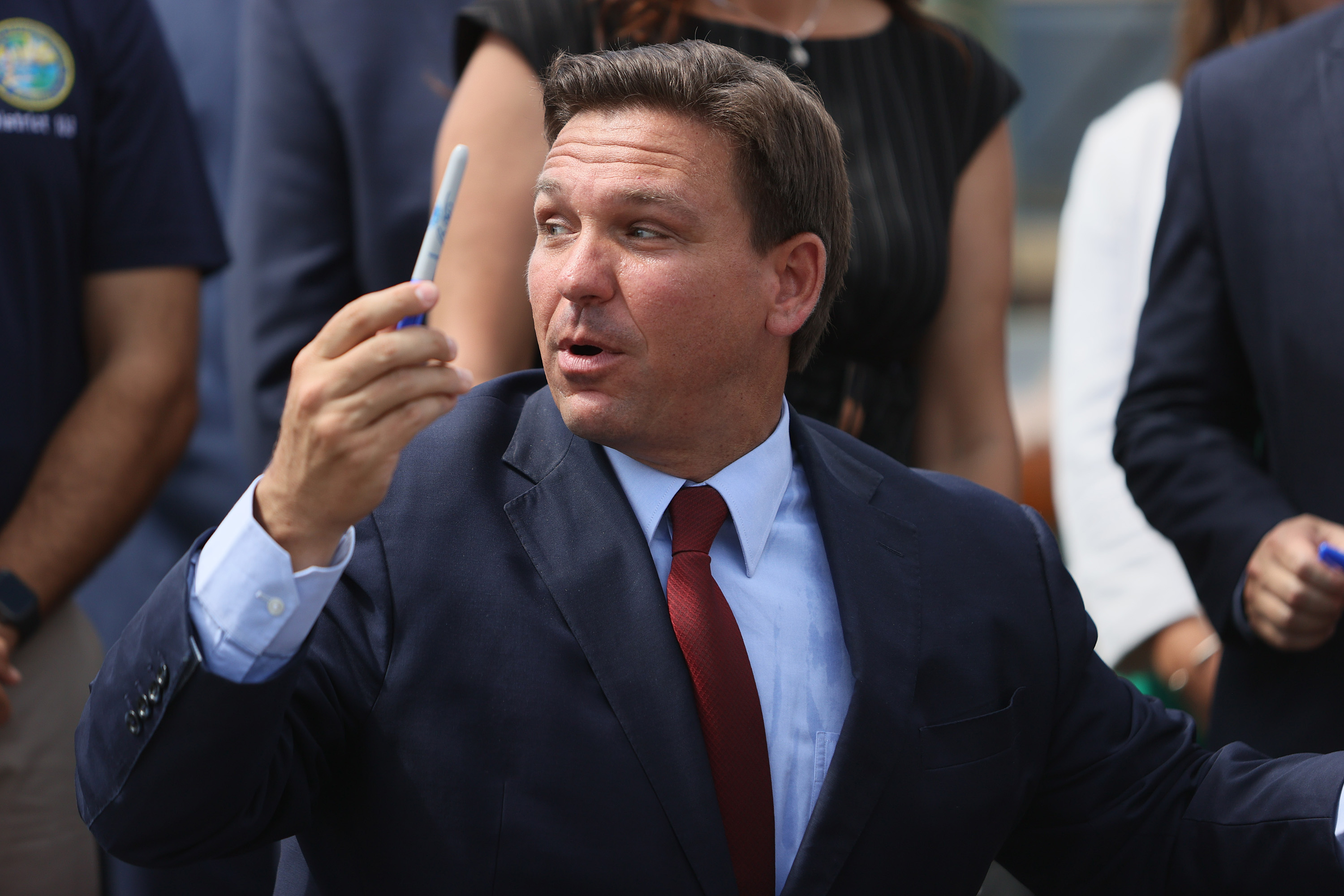Legislative Context
Desantis vetoes – Governor Ron DeSantis of Florida recently vetoed several bills that had been passed by the state legislature. These bills covered a wide range of topics, from education to healthcare to environmental protection.
In a surprising move, Governor DeSantis has vetoed several bills, including one that would have restricted transgender healthcare for minors. This decision has been met with mixed reactions, with some praising DeSantis for his courage and others criticizing him for his lack of compassion.
Meanwhile, Congresswoman Lauren Boebert has been making headlines for her controversial statements on gun rights. Despite the backlash she has faced, Boebert remains a popular figure among conservative voters. As the debate over DeSantis’ vetoes continues, it will be interesting to see how it affects his standing with both his supporters and detractors.
The legislative process leading up to the vetoes began with the introduction of the bills in the Florida House of Representatives and Senate. Once introduced, the bills were assigned to committees for review and debate. After being approved by the committees, the bills were voted on by the full House and Senate. If a bill passed both chambers, it was then sent to Governor DeSantis for his signature. However, Governor DeSantis vetoed several of the bills that had been passed by the legislature.
Desantis’ vetoes have sparked controversy, but amidst the political storm, there’s a surprising connection to the world of entertainment. North Korean K-pop , a blend of traditional Korean music and Western pop, has emerged as a cultural phenomenon that transcends borders.
Yet, the same tensions surrounding Desantis’ vetoes echo in the complex relationship between North Korea and South Korea, highlighting the interplay between politics and cultural exchange.
Vetoed Bills
The following is a summary of the bills that were vetoed by Governor DeSantis:
- HB 7: Parental Rights in Education – This bill would have required public schools to obtain parental consent before providing certain types of instruction related to sexual orientation or gender identity.
- SB 102: Ban on Critical Race Theory – This bill would have prohibited public schools from teaching critical race theory, which is a framework for understanding how race and racism have shaped American society.
- HB 1355: Election Law Changes – This bill would have made several changes to Florida’s election laws, including reducing the number of days for early voting and requiring voters to provide more identification information.
- SB 2518: Climate Change Mitigation – This bill would have established a state climate change mitigation program and set goals for reducing greenhouse gas emissions.
Political Analysis: Desantis Vetoes

Governor DeSantis’s vetoes have been met with mixed reactions, with both supporters and critics offering their interpretations of the political motivations behind them. Some argue that the vetoes are part of a broader strategy by DeSantis to appeal to his conservative base and position himself as a potential presidential candidate in 2024. Others suggest that the vetoes are a reflection of DeSantis’s personal beliefs and his commitment to conservative principles.
Impact on Political Parties
The vetoes are likely to have a significant impact on the Republican and Democratic parties in Florida. By vetoing legislation that is popular with Democrats, DeSantis is further alienating the Democratic base and making it more difficult for Democrats to win elections in the state. At the same time, the vetoes are likely to energize DeSantis’s conservative base and help him to consolidate his power within the Republican Party.
Public Opinion and Media Coverage
Public opinion on DeSantis’s vetoes is divided, with some polls showing that a majority of Floridians support the vetoes while others show that a majority oppose them. The media coverage of the vetoes has also been mixed, with some outlets praising DeSantis for taking a stand on conservative principles while others have criticized him for vetoing legislation that is popular with the public.
Legal Implications

DeSantis’s vetoes are based on the authority granted to him by the Florida Constitution, which gives the governor the power to veto any bill passed by the legislature. The governor’s veto power is intended to provide a check on the legislature’s power and to ensure that only bills that are in the best interests of the state are enacted into law.
However, DeSantis’s vetoes have been met with some legal challenges. Some critics argue that the governor has exceeded his authority by vetoing bills that were clearly passed by the legislature. Others argue that the governor’s vetoes are based on unconstitutional grounds, such as his opposition to the Affordable Care Act.
Potential Legal Challenges, Desantis vetoes
There are several potential legal challenges to DeSantis’s vetoes. One challenge is that the governor may have exceeded his authority by vetoing bills that were clearly passed by the legislature. The Florida Constitution gives the governor the power to veto any bill, but it does not give him the power to veto bills that have been passed by a veto-proof majority. In some cases, DeSantis has vetoed bills that were passed by a veto-proof majority, which could lead to a legal challenge.
Another challenge to DeSantis’s vetoes is that they may be based on unconstitutional grounds. The Florida Constitution prohibits the governor from vetoing a bill based on its content. However, DeSantis has vetoed several bills that he claims are unconstitutional, such as bills that would expand access to abortion and bills that would protect LGBTQ rights. These vetoes could be challenged in court on the grounds that they are based on unconstitutional grounds.
Implications for the Balance of Power
DeSantis’s vetoes have implications for the balance of power between the executive and legislative branches in Florida. The governor’s veto power is a powerful tool that can be used to check the legislature’s power. However, if the governor uses his veto power too often or for unconstitutional reasons, it can upset the balance of power between the two branches.
DeSantis’s vetoes have been met with some criticism, and it is possible that some of them will be challenged in court. If the courts uphold DeSantis’s vetoes, it will strengthen the governor’s power and weaken the legislature’s power. However, if the courts strike down DeSantis’s vetoes, it will weaken the governor’s power and strengthen the legislature’s power.